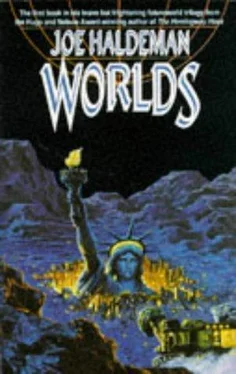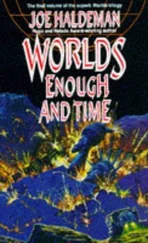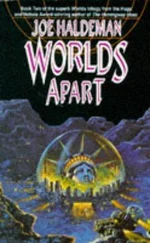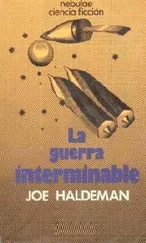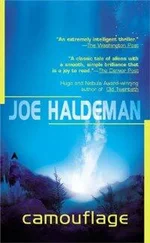If the Worlds were ever to become a closed system, independent of Earth, they had to have an outside source of carbon, hydrogen, and nitrogen. Simply put, you burn the hydrogen for water; burn the carbon for carbon dioxide that plants will turn to food; plow the nitrogen into the soil so the food can have protein. Closed-system agriculture is not a hundred percent efficient, so it can’t support a stable population, let alone an expanding one, without a constant infusion of these three elements.
There are three sources for these elements: the Earth, the asteroids, and comets, in decreasing order of handiness. Only asteroids of the carbonaceous chondritic type are useful, and most CCs are in damned difficult orbits. They found an accessible one, though, and named it Deucalion, and sent a bunch of unlucky engineers out to haul it in.
It was going to be a slow business, twenty-eight years. We couldn’t use brute force, as was done with New New, because CCs are relatively fragile. One shaped charge and all you’d have would be ten million tons of dirt flying in every direction. So the first team set up O’Neill-type mass drivers at each pole, and settled in for a long, slow push—and died abruptly. It couldn’t happen in a million years, a two-tonne meteor impact, but it did happen, and I was doubly glad I hadn’t volunteered for that trip, or for any of the six replacement teams. Not that they would particularly want an SoM engineer who couldn’t fit into a space suit.
Dan and I both thought it was a quixotic enterprise, a century or so premature. The Worlds were getting from Earth a constant supply of organics in the form of luxury food, which was a universally appreciated sign of status (and about the only thing you could buy , at least in New New). A well-aged Kansas City steak cost less than a day’s salary. I had one almost every Sunday—with asparagus, by God, and washed down with a Coke. I never could abide fish, and a steady diet of New New’s rabbit-chicken-goat regimen could turn an otherwise sane person to vegetarianism.
The point is, all that steak, asparagus, caviar, and what-not went straight from the shuttle into the biosphere. Next year it would come back to you as curried-goat molecules (to cite my least favorite of New New’s culinary abominations). All the Worlds were set up to recycle sewage and exhaled CO 2into new food, and the Earth was supplying plenty of surplus organics to make up for inefficiencies in the system. To make food out of cold rock was going to take a whole new set of systems, expensive ones, and the end result was going to be yet more trout and Hassen-pfeffer, and I would still be shelling out for steak. If there were some way to turn Deucalion into a cattle ranch, I would’ve been all for it.
So Dan and I were wrong. If everything operated as efficiently as hindsight, they’d have to scotch the laws of thermodynamics. But I was going to tell you about bringing the two of them together, Dan and O’Hara.
O’Hara and I were close friends, for reasons I did not care to examine too closely, and at this time of her life she was going through mates as if they were changes of underwear, so I thought it might be a friendly gesture to introduce her to Dan, in case there might be some chemistry there besides the oil-shale variety.
When our off-shifts and her class schedule finally meshed, we met at the Light Head, a quarter-gee tavern one level down from my flat. I went there frequently, not only because of the light gravity, but because they usually had a few bottles of Guinness. It didn’t taste anything like the Dublin variety, since it doesn’t travel well, but it was better than the thin brew your ration book got you. And it made me feel biospherically virtuous, giving New New a couple of pints of water recycled from the River Liffey (at Trinity we always maintained that Liffey water suffered nothing in flavor and appearance by being passed through a kidney or two).
Dan came from old New York, which was where O’Hara would be spending much of her time on Earth. Since she was to leave in a couple of months, I thought she would welcome talking to him.
Well, we got off on the wrong foot Dan and I were talking about the Deucalion project when O’Hara came in, and we were being slightly sarcastic. She took offense, and tried to argue the Worlds’ case, citing as one instance the United States, which had to become independent of England before it could grow. An unfortunate argument, and I kept my silence, but Dan had to point out that Canada did quite well under the yoke of the Crown and had managed to avoid having two civil wars in the process.
That got O’Hara truly off, she being a local America expert and also young enough to believe that there were analytical answers to this sort of question. She compounded an interesting argument out of demographics, climate, distribution of resources, sectionalism, and God knows what else, which I was unable to evaluate (I’ve been to America, but only to study composite materials, not history). Dan wound up agreeing with her, and apologizing, though whether it was from the brain or somewhere south of that, I couldn’t say.
O’Hara always was an odd person in many ways, but in this she was no different from anybody else: to lose an argument gracefully was a shortcut to her friendship. The rest of the evening was very cordial, not to say slightly drunken, and they left the Light Head arm in arm. For several days thereafter Dan showed up for work late and tired, and I dare say O’Hara probably missed a few classes.
(None of this is meant to condemn O’Hara’s behavior. You must remember that this was the eighties, and sexual morality was much looser than it is today. A young single person with no line obligations was expected to “butterfly,” lovely verb.)
Over the ensuing weeks I must admit I grew annoyed with myself for having introduced them, and was jealous of Dan for the O’Hara-time he stole from me. But if ever two people were made for one another, it was that pair. From that first night to the day O’Hara left for Earth, they were inseparable.
O’Hara didn’t like him at first. The Light Head is a fine little bar, but women are generally immune to its main attraction, a low-gee stripper. She was unreasonably annoyed by the way his eyes kept wandering, and said some outrageous things, to nail down his attention and John’s.
So they spent a lively hour arguing, then a half hour conceding, during which Daniel’s eyes didn’t wander. O’Hara found herself liking him, and casually decided that she would try to lure him into her. He didn’t take much luring.
It was a difficult, vulnerable time of life for her. She’d been just nineteen when Charlie left her, and hadn’t had enough experience with such things to handle it gracefully. She was butterflying with grim determination, taking to bed almost anybody who could get there under his own power. By chance or her unconscious design, though, none of those men approached being her intellectual equal. Daniel Anderson did, and that was going to make a considerable difference.
By Devonite standards, Daniel would not have been considered a good lover. Their slang for men like him was “hard place”: he had the minimum physical requisite but none of the skills they prized so highly. To O’Hara that was less a disadvantage than an interesting challenge. She enjoyed being good at things, and showing off her talents. So Daniel became the latest draftee into the platoon of men who indirectly benefited from Charlie Devon’s religious upbringing.
He was the first one who didn’t seem to be particularly impressed. Grateful, yes, and properly responsive to her ministrations, but from the beginning he seemed more interested in her brain than in the other organs. Rather than flattering her, this made O’Hara anxious. She had always taken her mind for granted.
Читать дальше
